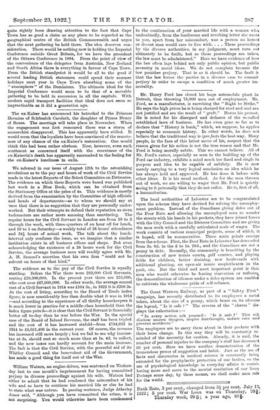William Watson, an engine-driver, was sentenced on Wednes- day last
to one month's imprisonment for having committed perjury in divorce proceedings against his wife. Watson had either t,o admit that he had condoned the misconduct of his wife and so have to continue his married life or else he had to state what was untrue. In passing sentence, Judge Atherley Jones said, "Although you have committed the crime, it is not surprising. You would otherwise have been condemned
to the continuation of your married life with a woman who, undoubtedly, from the loathsome and revolting letter she wrote to you, apart from her misconduct, was a person no honesl or decent man would care to live with.. . . These proceedings by the divorce authorities, in my judgment, must turn oul ultimately to be futile, but as these proceedings are takeik the law must be administered." Hero we have evidence of how the law often lags behind not only public opinion, but public necessity in moral ideas. We do not complain because the law punishes perjury. That is as it should be. The fault Ii that the law forces the parties in a divorce case to commil perjury in order to escape a condition of much greater
im- morality.


































 Previous page
Previous page